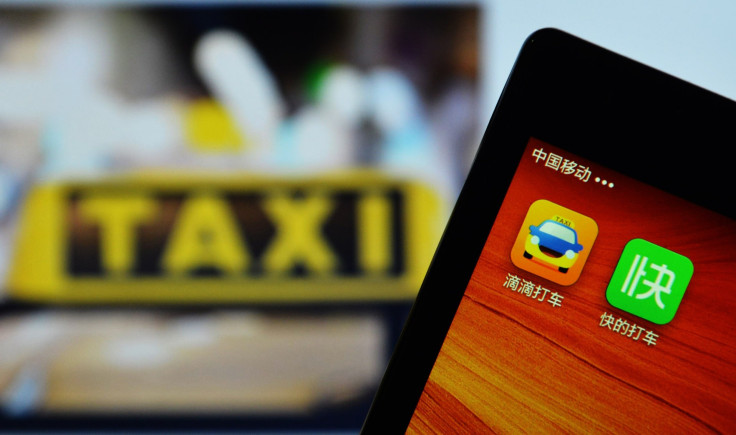Ride-Hailing App Safety Concerns Grow In China As Driver Arrested For Sexual Assault

A driver for an unidentified ride-hailing app was arrested by Chinese authorities in the southern city of Guangzhou after being accused of sexually assaulting a drunk passenger Monday. As controversial ride-booking apps continue to flood the Chinese market, sexual assault accusations have become an issue surrounding the use of apps such as Kuaidi and Uber.
Local police posted on their official microblog profile that a 21-year-old woman said she used one of the several app services available and was sexually assaulted in a hotel room by the driver. The woman said she got into the vehicle at 3 a.m. after attending a social event and passed out in the back passenger seat. In her statement, she says she woke up two hours later in a hotel room with the driver who reportedly admitted to trying to have sex with her while she was unconscious before driving her home.
According to a report by the South China Morning Post, citing municipal public security bureau spokesman Zhang Zhengui, the case is still under investigation. But it is the first case of its kind to be publicly reported involving the app service. The man in detention is a 29-year-old, surnamed Deng, who spent time in prison in 2013 for theft. Though the police statement did not explicitly say the victim had been raped, Deng reportedly confessed to having sex with the woman while she was drunk.
While the specific app has yet to be identified, one of the smaller ride-sharing companies in China, Yidao Yongche, confirmed that the driver was not part of their service.
Last year, Uber -- arguably the world’s largest car-service app -- came under fire after a woman in New Delhi said she was raped by her driver. The allegations prompted citywide protests and became the focus of a greater campaign against sexual assault and violence on women in the country. Uber was later banned by the New Delhi local government.
Though such services were introduced in the Chinese market a few years ago, a recent surge in popularity has placed extra government scrutiny on companies and the legality of their operations. Though the service technically has been deemed illegal by local authorities, the lack of enforcement has allowed such services to continue to operate.
© Copyright IBTimes 2024. All rights reserved.





















